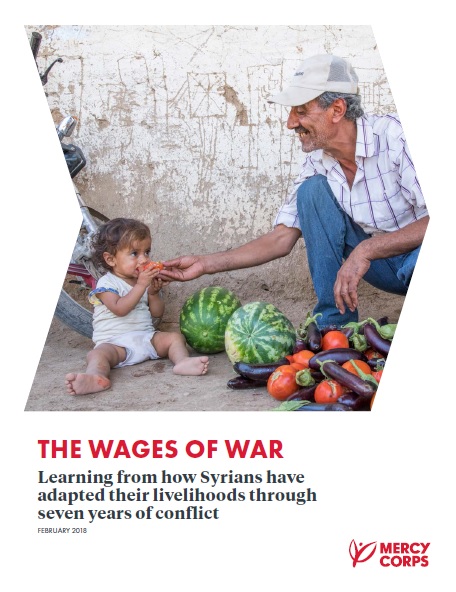The scale of death and suffering in Syria is monumental. What began as a peaceful protest in 2011 has spiraled into a humanitarian crisis unprecedented for our modern times: The war has killed as many as 400,000 Syrians and displaced 11 million more. Humanitarian needs remain enormous as the conflict wages on. The U.N. estimates that 8 in 10 people in Syria—including 6 million children—require humanitarian assistance. The crisis has set Syria’s development back nearly four decades. Despite these immense challenges, Mercy Corps’ work in Syria has found that some households are managing the devastating impacts of war better than others. We undertook this research to understand why.
The Wages of War: Learning from how Syrians have adapted their livelihoods through seven years of conflict

February 2018
ASSOCIATED PROJECT
SUBJECTS
PUBLICATION TYPE
LOCATION
RELATED PUBLICATIONS
This desk study explores how state-owned policies and programs in pastoral areas of the Sudano-Sahel and the Greater Horn of Africa meet pastoralists’ needs and priorities.
•
October 2024
This report outlines an anticipatory insurance product designed to support farmers in the drought-prone regions of Malawi and Zambia.
•
August 2024
The time pressure involved in designing and implementing anticipatory action can discourage the localization of decision-making. Learn more from a cartoon-infused summary of insights.
•
July 2024
Early Warning Systems can reduce deaths and damages caused by extreme weather events, if investors address gaps in communication and planning. Learn more from a cartoon-infused summary of insights.
•
July 2024
This synthesis report reflects upon Phase 1 findings on humanitarian action in pastoral drylands of the Greater Horn and Sudano-Sahel.
•
June 2024
This desk study examines common perceptions of pastoralism among humanitarians and barriers to international humanitarian systems meeting pastoralists’ needs.
•
June 2024






